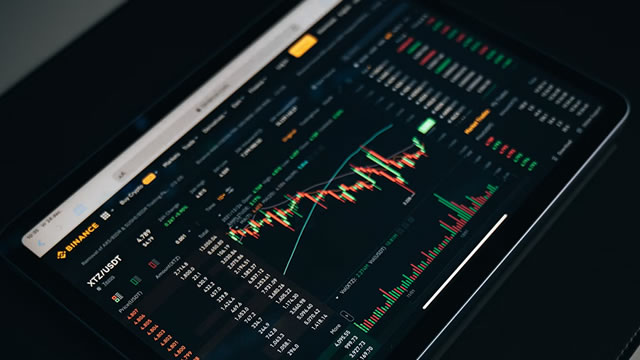Exploring the Impact of US Capital Shift on European Equities: Insights from Salman Ahmed
In a recent interview on Bloomberg Television, Salman Ahmed, the Global Head of Macro and Strategic Asset Allocation at Fidelity International, shared his insights on portfolio diversification and the potential ripple effects on European equities if US capital undergoes a structural shift away from domestic stocks.
The US Capital Shift: A New Reality
According to Ahmed, the US economy has been experiencing a significant trend in recent years: a growing preference among US investors for international equities. This shift, he explains, is driven by several factors, including:
- Economic Growth: The US economy has been expanding at a solid pace, leading to concerns about valuations and potential overheating. In contrast, some international markets, particularly in Europe, offer more attractive valuations.
- Geopolitical Risks: Tensions between the US and China have led some investors to seek diversification by investing in European and other international markets.
- Monetary Policy: The European Central Bank’s (ECB) accommodative monetary policy has made European stocks more appealing to some investors.
European Equities: Potential Winners and Losers
Ahmed notes that the impact of this US capital shift on European equities is likely to vary widely across sectors and individual companies. Some sectors, such as technology and healthcare, may benefit from increased foreign investment, while others, such as energy and financials, could face challenges.
Furthermore, the size and timing of this shift are important factors to consider. Ahmed warns that a sudden, large inflow of capital could lead to market volatility and potential mispricings. Conversely, a gradual, more sustained shift could help support European equity markets over the long term.
Personal Implications: Diversifying Your Portfolio
For individual investors, the US capital shift towards international equities serves as a reminder of the importance of portfolio diversification. By spreading investments across a range of asset classes and geographies, investors can help mitigate risks and potentially enhance returns.
Global Consequences: A Changing Landscape
Beyond individual investors, the US capital shift could have significant implications for the global economy. As more US capital flows into European and other international markets, we may see increased competition for assets and potentially higher valuations. This could lead to increased volatility and potential misalignments between economic fundamentals and asset prices.
Conclusion: Navigating the New Normal
In conclusion, the US capital shift away from domestic stocks and towards international equities is a trend that is likely to continue in the coming years. For investors, this shift underscores the importance of portfolio diversification and staying informed about global economic trends. For the world at large, it represents a changing landscape that will require careful navigation to ensure long-term stability and growth.
As Salman Ahmed noted in his interview, “The world is becoming more interconnected, and investors need to be mindful of these trends and adapt their strategies accordingly.”
So, whether you’re an individual investor or a global institution, it’s essential to stay informed and stay flexible in this new normal. And who knows? You might just find some unexpected opportunities along the way.





